Men of St. Lawrence!
I now come to the pith, the marrow of my subject, and the discussion is in strict conformity with my prospectus, of which 6000 copies were circulated in the United States. I propose ‘to discuss the local politics of the Union’ as far as they were connected with the interests and politics of Canada, the other British Colonies and Europe, especially the United Kingdom. Certainly the question I am about to consider is not one of local import, for I do most sincerely believe that upon your decision of it, hangs the success of the poor patriots of Canada, and what is dearer to me still, the final overthrow of monarchical tyranny and the establishing of free institutions in Europe, especially in Ireland, England and Scotland. And I think that I will prove to your entire satisfaction that it includes the all absorbing question whether you are capable of self-government, or whether your country, the last hope of the wise and good in all nations, shall be bribed by wealth to sell your birthright Esau like, for that which will be of little value, leaving poverty and wretchedness to your descendants. The Abolition question is, whether some colored people shall be relieved from bondage, but the question of United States Bank or no Bank, or in other words of National Treasury of no Treasury, involves the safety of the Union. Your sympathy for us Canadians is creditable to your hearts, it proves you affectionate and true as men and as husbands, and as fathers and friends, but remember if you fail we never can rise up, if you permit artful and designing men to thwart a government of your deliberate choice in the great work in which it is now engaged, the despots of Europe will rejoice and Canada be undone.
Are there those who desire to abolish negro slavery? Let them begin in every part of the country to add to the number of able teachers and public schools where the youth of both sexes that are colored may obtain the rudiments of a good education – learn to read write, and thus become possessed of the keys to useful knowledge. This seems to me the first great step towards proving of the African race that those colored men are undeserving of freedom who go to Canada to assist its tyrants to oppress the whites.
If there is any of you that have for a moment fallen in love with English or American Whiggery, pause and look for one moment at the conduct of every government press of trodden down Canada. One and all they curse Van Buren. Look at The John Bull in London, the organ of the Church, loud and unwearied are its maledictions on Van Buren. His whole career and that of his predecessor are hateful in the eyes of the money-changers, gamblers, land and stock speculators, sharpers, relatives of foreign gew-gaws, brokers, foreign merchants, federalists, monarchists, 1776-tories, ’34-whigs, conservatives, church and state unionists, and bankrupt-bank folks, and so open and impudent is the enmity of the Courier and Enquirer, the Evening Star, the American, and the N.Y. Gazette, towards the excellent government at the head of which nation has wisely placed one of the eminent citizens of your state, that even Socrates Sherman, A.B. James & Co., are constrained to cry out, ‘we do hold the doctrines of these presses in abhorrence and contempt. We look upon their course on that subject as one directed by British influence, and upon them as the organs and mouth-pieces of British capital, British feelings, and British interests.’
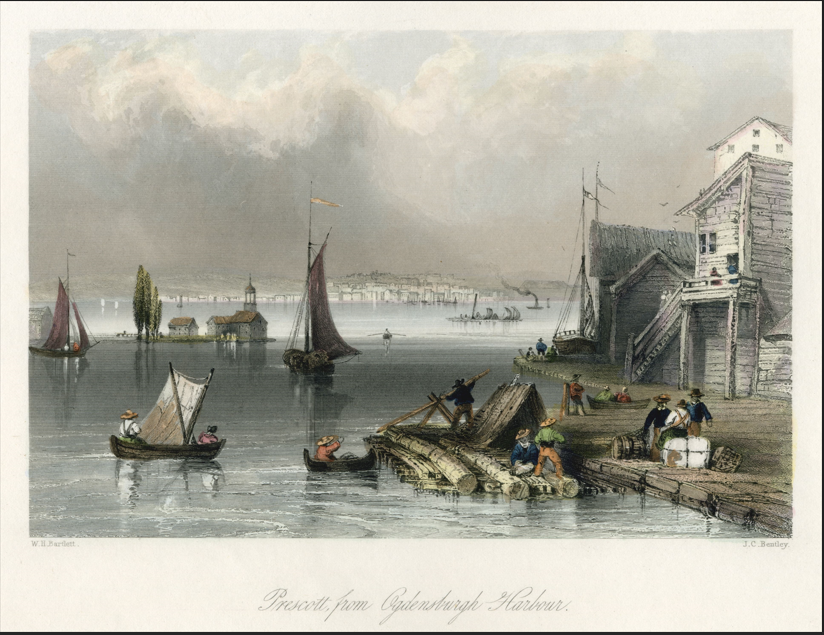
What think ye of this, Men of St. Lawrence? – The Biddle presses are denounced by the nine muses of Ogdensburgh. Noah and Webb, the Jackson men who turned their coats and would have turned their skins for a share of the plunder in Biddle’s money chest, are thrown into the same scale with old Stone, King, and Daniels, and denounced on that subject as mouth-pieces of foreign capital and foreign interests! See how well these foreign mouth-pieces of New York chime in with the nine Ogdensburgh whig muses in their hatred and abhorrence of the honest American government of your selection. A.B. James and Socrates Sherman are humble fellow workers with the hirelings of the Courier and the Star, but although their grand object is the same, Socrates sails on one tack in St. Lawrence, and Mordecai on another in Gotham. Socrates talks of liberty for Canada, Watson Webb of commerce and ships – both keep the object steadily in view, the establishment of a foreign corporation with the money power, and the defeat of a faithful government, the only government on earth which the poor and humble have operated, and now rally around.
O, may that overruling providence, which has guided us and our forefathers from infamy to manhood, from warn out and harassed Europe into fair and free America, the power which preserved and protected and watched over the patriarchs Jefferson and Adams, and blessed their departing spirits with a sight of the bright sun of freedom as it shone on the fiftieth anniversary of their nation’s birth, may it ever watch over the people to whom blessings never given to men in other lands have been vouchsafed – so that millions yet unborn whom oppression may yet drive from the abodes of horrid cruelty in other lands, may ever find here in a city of refuge, and the worshippers of Liberty in every clime learn to turn their eyes towards the west as her chosen temple, where no bank whig shall dare hold them up to scorn and contempt because they express their opinions, nor taunt them as aliens to American principles because, like Washington, Paine, Franklin, Lee, Montgomery, Gates, and Jackson, they were born the subjects of a British prince...
The people of the United States are able to crush British power in America, free Canada from oppression, and turn their northern frontier of 4000 miles into a half mile width below Quebec, if they will manfully uphold the policy of the administration of Mr. Van Buren, go heart and soul for the responsible treasury against a national bank, for a divorce of the banking business from the exchequer of the nation, and in favor of a low tariff, and light taxes upon the people. If the government get saddled with a whig-federal conservative majority in Congress, the machine of state will be disordered, useful legislation will be halted, as heretofore, and the people may get wearied out in their opposition to the aristocratic function, and allow a president to take the helm who would sign a National Bank Charter. That would be the chain of colonial vassalage once more thrown around the shoulders and ankles of the old thirteen states. That would constitute their re-subjugation as British colonies. To that mammoth mass of incorporated foreign wealth and power, president and people would alike be bound to bend the knee. Even now, America pays heavy tribute to England – the country is drained of its gold to be used by Europe to uphold despotism in Canada and Ireland. England engrosses the trade, supplants the manufactures, and prohibits the agriculture of these States. Who wears an American coat or vest? What lady walks in Broadway but is decked with the flimsy fabrics of besieged Europe? Allow me to bring home the federal-whig bank question to the very humblest capacity, by a plain comparison.
The County of St. Lawrence is comprised of a number of townships, from the people in which, a county tax is raised, the cash paid into the hands of an officer of your choice, expended as you may direct by persons at your appointment, and the parties bable (sic) to be re-elected or set aside by your votes, as may appear to you most proper. A statement of the receipts and payment by your treasurer is drawn up, audited, published and all this within the County of St. Lawrence.
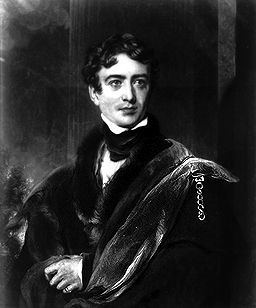
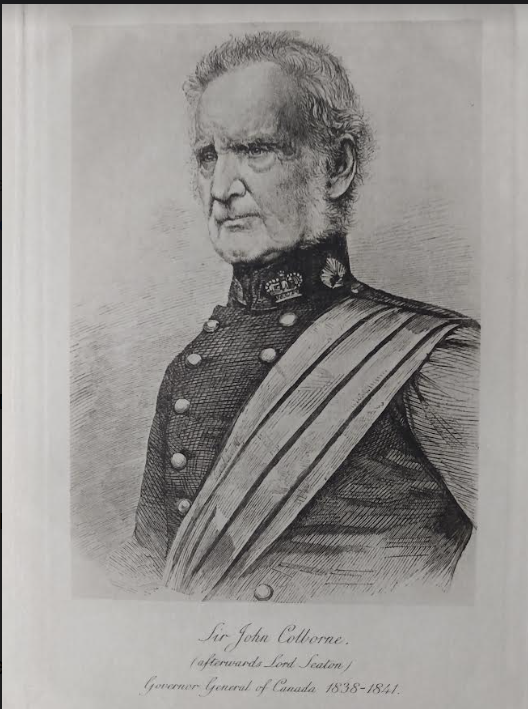
Let us suppose that an Ogdensburgh dealer in English silks, lace, and calicos might propose to alter your system thus: That instead of electing and re-electing your county treasurer you should send a humble deputation to Toronto, Kingston, and Prescott, to Sir Allan McNab, Sir George Arthur, Sir Daniel Jones, Councillor Sullivan, Sir John Colborne, Lord Durham, Capt. Drew, Capt. Marryatt, Colonel Wetherall, Judge Jones, Chief Justice Robinson, and a few more of these equivalent characters who are devouring the substance of the people of Canada, to invite them to invest a portion of their ill-gotten gains in a bank which you would henceforth declare to be your treasurer – that that bank would have privileges withheld from all others, that all the money raised in taxes from you though collected in cash or other notes, should be paid out in your county payments only in the paper of this foreign stock-privileged concern, in order to extend its speculation all over the county, and to enable it to make immense profits to be divided twice a year in your gold and silver, among its Canadian owners. Suppose a war to take place in which Canada would be against you, would it not be a curious sight to see your whole county revenues paid in specie and the notes of other banks into this foreign gulf, to be divided among its royal owners against whom you would be fighting, while their paper rags for which you had humbly prayed for leave to pay them interest, would be constituting the bulk of your county circulation?
As such a bank would be to the county of St. Lawrence so is the darling whig and federal project of a national U.S. Bank to the whole of the States, a project to take away the power of the purse from the great body of the people, who now exercise it through officers whom they can turn in and out when they please, and to place the whole of the national revenue in the hands of the agents of foreign dukes and lords, by giving them the power to collect the same, use it for speculation, and circulate their own paper in place of your money in every part of the union. The whigs well know that no national bank charter can be framed so as to prevent English capitalists from owning the stock, and with the stock go the profits, power, patronage, and mighty influence of discounts, hiring the press, controlling the government, and harassing trade to day or helping it to-morrow, as best may suit the evil purposes of our ancient adversary the aristocracy of England. The net direct profits to our former masters from their lowly slaves would probably be five millions of gold yearly, to which add fifteen millions from sources shewn in my last paper, and perhaps other five as interest paid by individuals and otherwise to Europe, would make some five and twenty millions of annual tribute payable in cotton, tobacco, gold, silver, &c., besides the produce we exchange with Europe for the fineries exhibited in the stores of Ogdensburgh, Canton, Morristown, &c. I was in the habit of discussing the U.S. Bank question as regularly in Toronto, as I am here. We Canadians saw clearly that in your democracy was our great strength. Your triumphs are ours, your defeat would seal our subjugation.
I am reminded by Socrates and his nine wise men of Og, that I am ‘the subject of an European monarchy,’ ‘an alien,’ who have not ‘breathed the air of freedom for six months,’ and they will not ‘permit’ me to meddle in their politics. Marvellous! The government scribes on t’other side your big river used to pronounce me the greatest yankee in all Canada; always holding up that bad man Andrew Jackson, and that worst of all governments which centres at Washington. If by ‘the air of freedom’ is meant New York, I spent the winter of 1821 in this city, and many a happy day have I passed in this republic since. Were Emmett, M’Nevin, and the other Irish gentlemen who sought to free Europe, denounced as aliens when they interfered in politics? Did some solemn ass of ’70 tell that extraordinary man Thomas Paine that he should not have spoken or written ‘Common Sense’ until he had become a citizen? How long had Marshall Bidwell left Toronto before he was called to the bar of New York? But stop: Socrates Sherman and Plato James have an example in the alien and sedition laws of a former age, it is ’34 whig to all intents and purposes. Ogdensburgh whigs beat the British hollow.
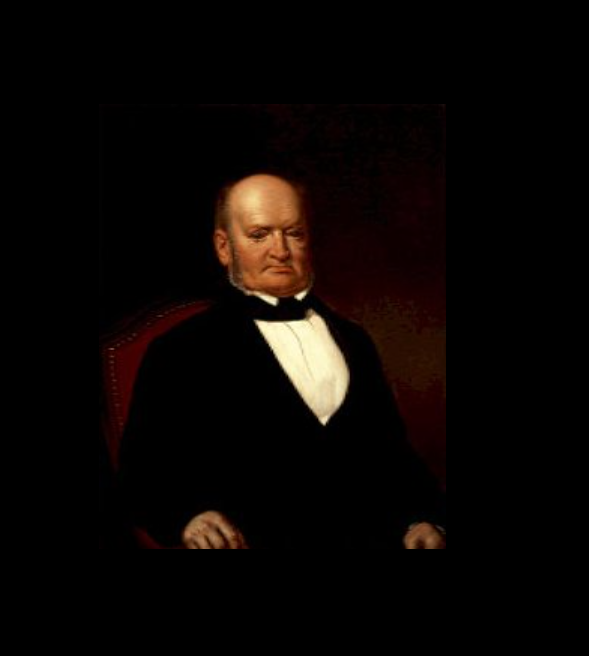
George Gurnett, an Englishman, took the oaths to this government in Virginia, afterwards went to Toronto, became its mayor, and is now a civil and military officer of Arthur’s whig government there. Go over, O, Socrates and enlighten them! Mr. Thos. M’Kean, governor of Pennsylvania, was an Irishman of Scottish parents, he sat with the Reverend Doctor Witherspoon and Mr. James Wilson, both of them Scotchmen, in the convention which issued at Philadelphia the Declaration of Independence, 1776, and the Irishman and the two Scotchmen signed it. What a pity the natives who delegated these three old country rebels had not a Socrates Sherman or an A.B. James to instruct them that a man’s patriotism depends on his birth place more than on the principles which may have guided his whole life! I have carefully studied the language, resolves, and actions of parties in this Union for many years, and I am free to deny that the leaders of the whigs are the friends of Europeans. Perhaps we are two millions in America, and nine-tenths of us good democrats. How bitterly I have heard us sneered at by King Noah, Webb, Greeley, and that class of whig organs. The presence of an Englishman, and still more of an Irishman at the hustings, has ever been the signal for party vituperation from ‘the native American’ faction. John M’Kean’s Irish name and descent were not the least of the sins from which he was excluded from Congress and from office since.
I suppose the charge about Mr. Van Buren’s conduct in London is foisted into a letter to me, because it is connected with British politics! But what of it? Mr. V.B. went to England. His government said he had obeyed its orders – the people voted approbation at the ballot boxes, first by creating him Vice President, and then President. Must it be reviewed once more? Is he to be tried again by Plato and Socrates? If he has encouraged spies, who are they? If a young lad happened to be in London when a dumpy little girl was appointed by a set of knaves and set up as a goddess for fools to stare at, and if a groce of lies are told about the lad, what has that to do with my letter to the people of Canada? And to blame the President of the United States because a senator sent from the State of Pennsylvania, chose to introduce a particular bill into Congress which never reached the President’s chair at all! Ah, Socrates! that was far fetched. Why not come out like a man, and tell the true reason of thy hatred to thy government? Is it not that it is by far too honest and true to the interest of the working man to find favor with Ogdensburgh whigs, or, what is just the same, Brockville tories.
I know that there are many patriotic Americans who do not at once perceive the deep and abiding importance of backing the government in this great question of the money power. England began her National Bank exactly in the way her rich men are desirous of beginning yours at Philadelphia, it was a joint stock concern. That bank gave rise to the borrowing forever scheme, and the bank and the debt taken together weigh like a millstone round the necks of the English people, and have made millions of victims to crime, poverty, wretchedness and despair. The debt of England is increasing even in a period of profound peace, revulsion of trade brings her revenue below the expenditure, and her North American possessions are only kept in subjection to her away by an overpowering military force. Yet let us not under-value her strength. Since her struggle with Bonaparte she has obtained a great increase of mechanical skill and available capital, her agriculture is improved, and in the case of war (for which America is, I hope, fully prepared), she would stop all cash payments and legalize a bank restriction at the very outset; indeed she is pretty near that pass now, and only wants a decent pretext for throwing out irredeemable notes by the bale as legal tender. She is quite ready to increase her overgrown debt, and her capitalists from whom you borrow at six per cent will lend her other five hundred millions of dollars at three if she desire it. To lighten the pressure of this new debt she would increase her issue of paper, and when the end comes and another Peel’s Bill is required to reduce the money price of goods to their old specie level and keep faith with the public creditor (!!!) the trial of the tightness of the frame work of society in England will once more be made. The point of endurance with her suffering people is not yet known. There is no written constitution in England to interfere with the omnipotence of an act of the parliament. That does every thing. Who could have foretold in 1793 that her government would have borrowed over twenty-seven millions of dollars, drawn tribute even from free America, and yet been able in 1838, to brave this great country even on its own ground with her armed troops, aye the very same regiments, some of them, that warred against freedom when the thirteen States were weak, disunited, and their people scattered over a vast wilderness! In these days your poverty was your strength; time will tell whether the system you now cherish, namely, to make great cities, a wealthy few, with many to labor for them, will not prove a source of internal division and national weakness. One thing is evident – our fate is yours – the middle of the river cannot, will not be the boundary of rival nations in the valley of the St. Lawrence.
I have extended this letter farther than I intended. The mail of Thursday brings me Mr. Otis Glynn’s letter, resigning his agency, requesting that all papers ordered by him to be instantly discontinued, whether addressed to Ogdensburgh or elsewhere, and broadly asserting that the government of your choice, although not two years in office, is corrupt, rotten at the core. Dalton at Toronto says the same thing in his Patriot – so do Weir and Thom in their Montreal Herald – and Kemble in his Quebec Mercury – and Webb in his Courier and Enquirer, (Who owns it?) – and Gales in his Intelligencer, (Who owns it?). I differed from these worthies in Canada, it is not likely I shall agree with them here. If this corruption is included in the summary of Socrates Sherman and A.B. James, the less the whigs say on the subject the better.
Talking of corruption, what does half the world present us, my friends, but a spectacle of ignorance and prejudice in the many ever turned to the advantage of a few? Why do the people of France support on the throne a soulless tyrant, constantly warring against liberty? Why have the brave Belgians, who united in subduing one species of despotism, already become the victims of another? Why is the pauper Leopold permitted for an hour to continue his tory-whig trade of exciting the prejudices of Belgians against Dutchmen, corrupting the press, and nullifying the revolution by means of a well organized system of spies and informers? What blighting curse has passed over the loved land of Kosciusko? (sic) Did not the nobility of Poland by their despotism and intrigue at home and diplomatic villainy abroad hasten the downfall of their nation? Why are the powers of each state of Germany vested in only one man, to control at his will the press, education, law, property, religion, revenue, life itself? Whence come their spies, soldiers, informers, judges, and jailors, but from the people? An enlightened people would in one hour overthrow their tyranny and crush it forever. Look at Hanover, with the head of the Irish Orangemen as their King; see him as busily employed warring against human happiness as though he were a demon from the regions below! Go to Italy, the land of Roman glory and republican grandeur. What is it now? A province of the Austrian tyrant, filled with a population fanatical, prejudiced, ignorant and debased. Wander through Spain, and behold the hundreds of thousands of human skulls that blanch in the summer’s sun, a record of an ignorant and devoted land, the victims of factious strife and British rapacity. Sixteen years ago you rejoiced in the hope of freedom for Greece. The Turkish yoke was shaken off, and Byron fondly hoped that the land of Socrates (not him of Ogdensburgh) and Plato, of Lycurgus and Miltiades, was again to spring into renewed life. But no, the despots of Europe gave them a child for a ruler, and England affords the means to nurse the basking serpent. What hopes then can Europe yield if you fail? And you are closely watched. Some of the principle booksellers in Philadelphia whose stocks are heavier than your imagination can conceive, never venture to reprint a British author, no matter how popular, until their lord and master the United States of Pennsylvania has secretly reviewed the work, and certified that English interests and theirs in particular will suffer no loss, or in other words that democracy will make no gain by a republican.
I remain your faithful servant, W.L. MACKENZIE.”
Conclusion:
What was the reason behind the publication of this somewhat rambling and obtuse discourse? Mackenzie was in agreement with American President Martin Van Buren’s desire to establish an independent treasury, instead of a national bank. He also supported the radical Jacksonian Loco-Focos (originally the Equal Rights Party), who were anti-monopoly, anti-bank, and hard-money men. They also backed Van Buren’s plan.
In an about face from his previously held position, Mackenzie decided to support Van Buren and to accept the president’s proposed plan of peace with Great Britain.
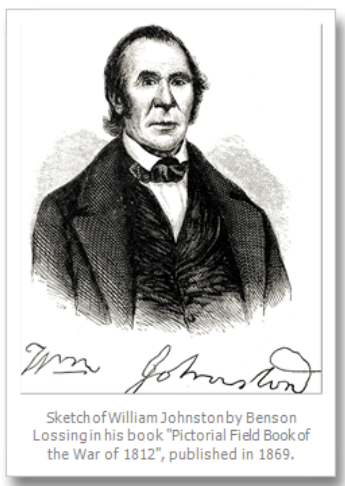
Mackenzie first began to account for this change in a letter to Bill Johnston published in the July 21, 1838 edition of Mackenzie’s Gazette. Two weeks later he came out in total support of Van Buren, whom he believed was striving to carry out the principles of Jacksonian democracy, while defending labourers and farmers against the threat of monopolists.
Mackenzie would continue to publish articles about the merits of Van Buren, the Loco-Foco programme, and the dangers of a moneyed aristocracy taking over power in the United States. The August 25 letter (recorded above), spelled out some of the positions which Mackenzie fervently held. But his departure from remaining neutral in American politics cost him dearly. By the end of September, 1838, the cancellation of subscriptions to the Gazette in Jefferson, Monroe, Fuller and St. Lawrence counties numbered two hundred.
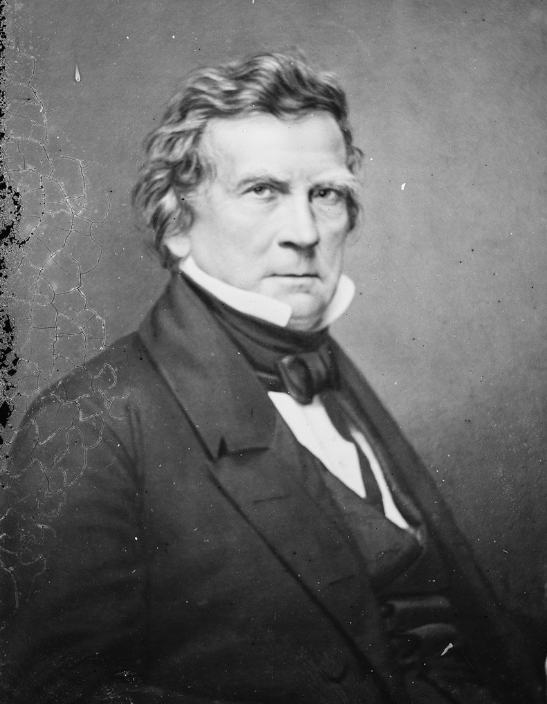
In the New York State elections of 1838, Mackenzie supported incumbent William Learned Marcy, whom he believed was the best candidate to strengthen Van Buren’s chances of winning a second term. Marcy lost to William Seward. This would not be the last blow to Mackenzie.*
In the 1840 presidential election, Van Buren was defeated by the Whig candidate William Henry Harrison. Mackenzie had bet on the wrong horses. This miscalculation resulted in further personal challenges. Subscriptions to the Gazette continued to plummet, as did the decline in the interest in the whole Canadian cause. When the last issue was published on December 23, 1840, the paper was closed down and its remaining assets sold.
In 1843, Mackenzie started up the New York Examiner to specifically attack Van Buren, and in 1846 he published a book which in part criticized the former president. Mackenzie was pardoned by the Canadian government in February of 1849. He left New York State and returned to Toronto. This ended any formal connection with the residents of St. Lawrence County. In Toronto, he was elected and sat as a member of the Provincial Legislature from 1851 to 1858. He died in Toronto on August 28, 1861.
___________________
Footnotes:
*William Lyon Mackenzie was arrested and tried in Canandaigua, NY, by American authorities for breaching the United States Neutrality Act. He was convicted on May 30, 1839, fined $10 and sentenced to 18 months incarceration. At his request, he was imprisoned in the Rochester Jail on June 21, 1839. This would enable him to continue to publish the Gazette, even while behind bars. He spent 11 months there before being pardoned by President Van Buren on May 2, 1840. It was thought that his loyalty to Van Buren had helped to facilitate this early release. Set free on May 10, Mackenzie continued to publish the Mackenzie’s Gazette until December 23, 1840.
Endnotes:
A whole series of Patriot newspapers sprung up in American border-states during this period. Some of the following titles were paid for or financially supported by local Hunters’ Lodges: The Budget (Conneaut, Ohio), Freeman’s Advocate (Lockport, N.Y.), The Patriot Friend (Painesville, Ohio), The Patriot Express (Syracuse, N.Y.), The North American (Swanton, Vt.), The Spirit of 76 and Theller’s Daily Republican Advocate (Detroit, Mich.), Canadian Patriot (Derby, Vt.), Bald Eagle (Cleveland, Ohio), Lewiston Telegraph, Oswego Bulletin, and the Buffalonian (Buffalo, N.Y.).
Other newspapers that had sympathy for and promoted the Patriot cause included; the [Watertown] Jeffersonian, Detroit Morning Post, Detroit Free Press, Buffalo Daily Mercury, and the Philadelphia Public Ledger.
Mackenzie’s Gazette which was initially established as a newspaper concerned with defending the Patriot cause while providing news from Canada and the United Kingdom, fit into this second category.
For more information about Patriot newspapers, see Stephen R.I. Smith, “The Patriot Press and Their Paper Tiger, 1836-1842,” Ontario History (Autumn, 2023), v. 115, # 2.
________
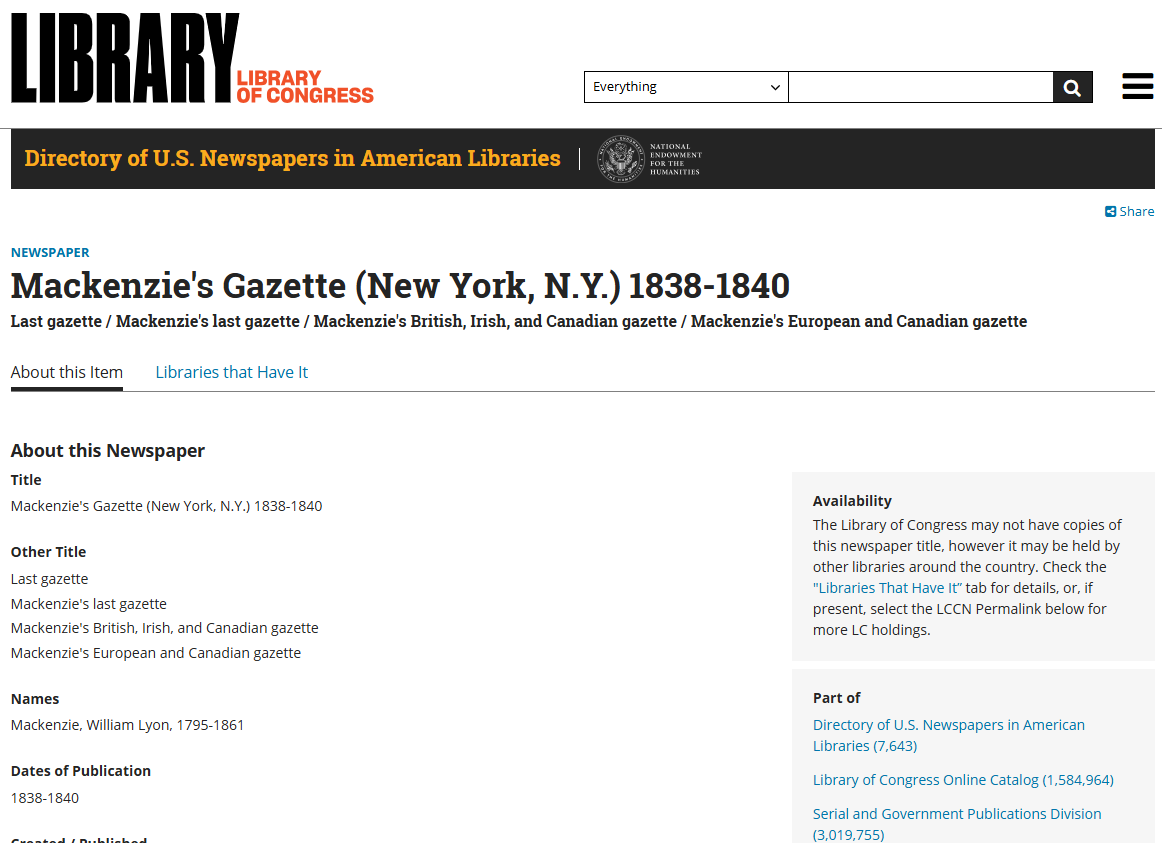
Bibliography and Suggested Readings:
Carter, John C, “One Way Ticket to a Penal Colony: North American Political Prisoners in Van Diemen’s Land,” Ontario History (Autumn, 2009), v. CI, # 2.
Carter, John C. “Recollections from 185 Years Ago. Some observations of the Patriot War,” The Wayback Times (Summer, 2022), v. 151, # 27.
Gates, Lilian F. After the Rebellion, The Later Years of William Lyon Mackenzie (Toronto: Dundurn Press, 1988).
Gates, Lilian F. “The Decided Policy of William Lyon Mackenzie,” Canadian Historical Review (1959), v. 40, # 3.
Lindsey, Charles, The Life and Times of Wm. Lyon Mackenzie (Toronto: P.R. Randal, 1862).
Mackenzie, William Lyon, “A Letter to John Stewart, Jun.,” Mackenzie’s Gazette (August 18, 1838).
Mackenzie, William Lyon, Life and Times of Martin Van Buren (Boston: Cooke & Co., 1846).
Olney, Mabel G., “William Lyon Mackenzie: Rochester Newspaper Man,” University of Rochester Library Bulletin (Winter, 1964), v. XVII, # 2.
Olney, Mabel G., “William Lyon Mackenzie: The Rochester Years 1838-1842,” M.A. Thesis, University of Rochester (1962).
Raible, Chris, “James Mackenzie, Advocate for Canadian Freedom,” Australasian Canadian Studies (2007), v. 25, # 2.
Steedman, Josh, “Rumours, Ruffians, and the U.S.-Upper Canada Border,” Ontario History (Autumn, 2023), v. 115, #2.
Acknowledgements:
The author would like to thank Susan Hughes, Adrian King, Chris Raible and Susan Smith for their assistance and advice in the preparation of this article.
Dr. John C. Carter is a Sauble Beach/East York, Ontario based museologist, historian and author. He has researched and published articles about the 1838 Upper Canadian Rebellion/Patriot War for over 40 years. This is the twentieth article that he has written about the 1838 Upper Canadian Rebellion/Patriot War, which frequently appeared online in Thousand Islands Life Magazine, since 2010. Dr. Carter can be contacted at drjohncarter@bell.net.
[Be sure to click here and here to see that complete list of Dr. Carter's articles on the Upper Canadian Rebellion/Patriot War and links to learn more about the history of Ontario and Northern New York.]
Editor's note: All of Dr. John Carter's writings for TI Life are exceptional. This one makes this editor smile. When I think of the energy that goes into the Pirate Days in Alexandria Bay I wonder how many of us take the time to read our real Island history. Here is one of my bibles and John's works are even a cut above!
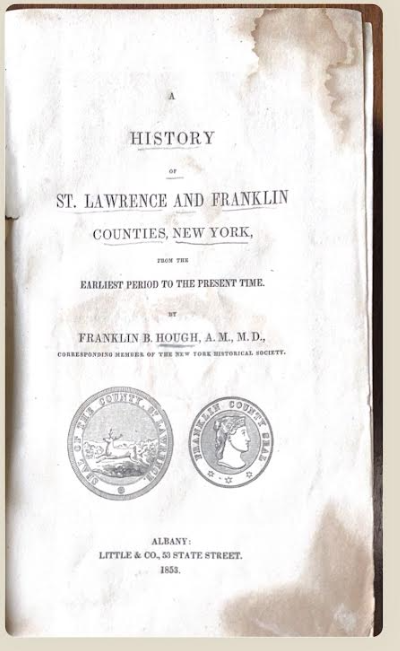
Posted in: Volume 19, Issue 9, September 2024, History, People, Places, Current
Please click here if you are unable to post your comment.
